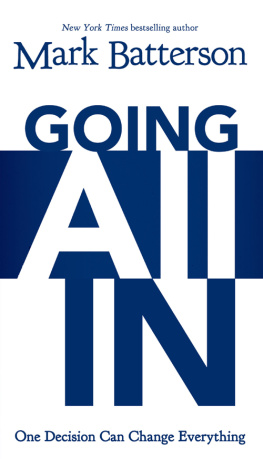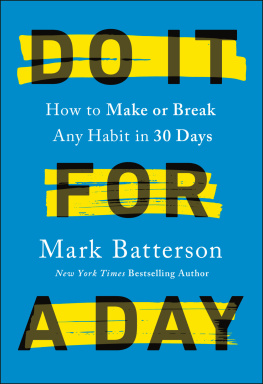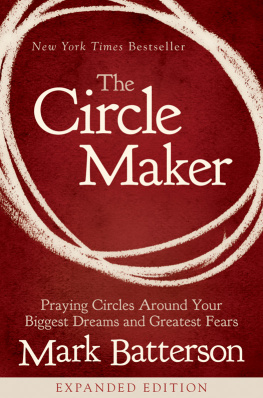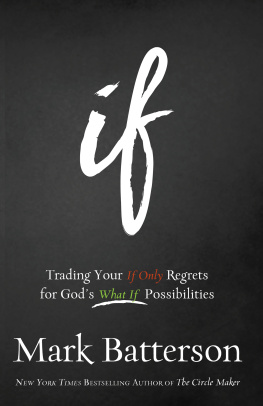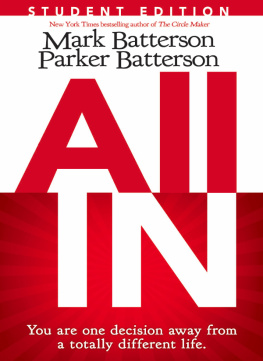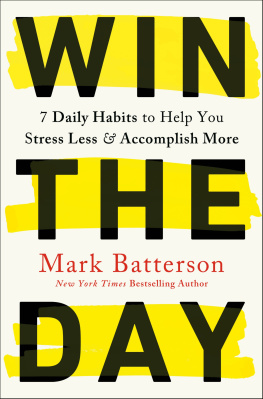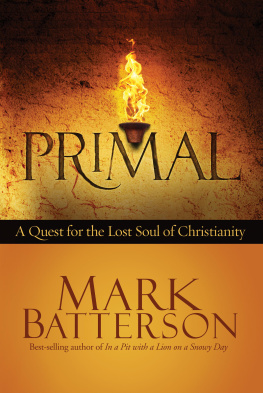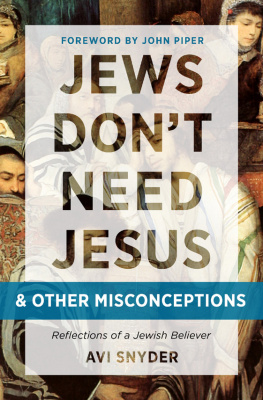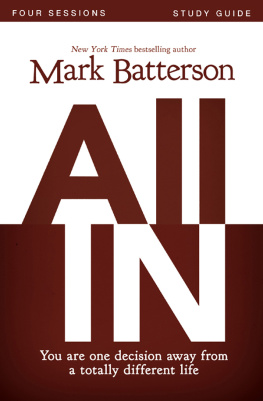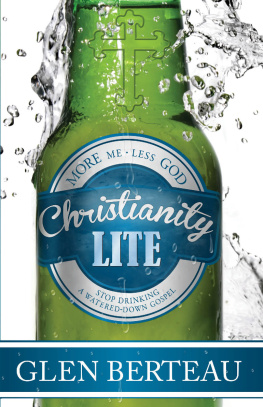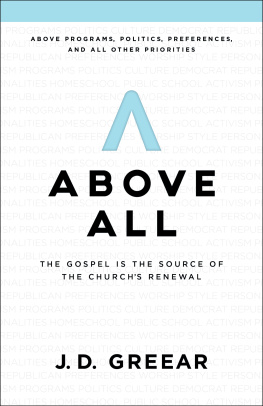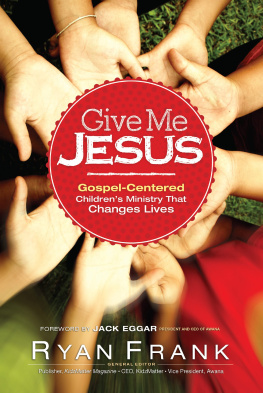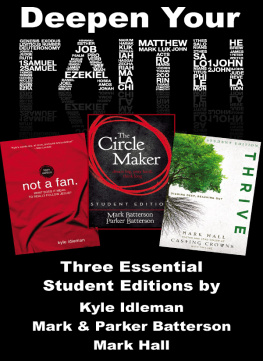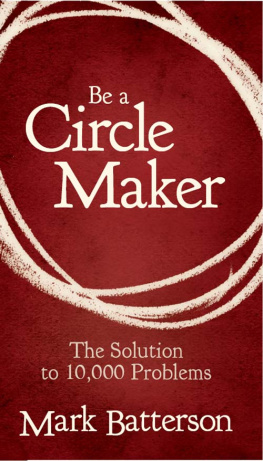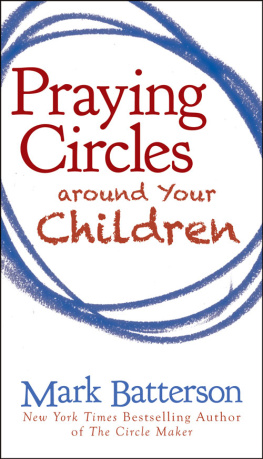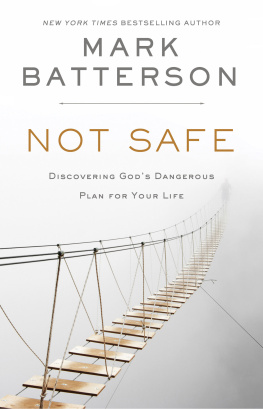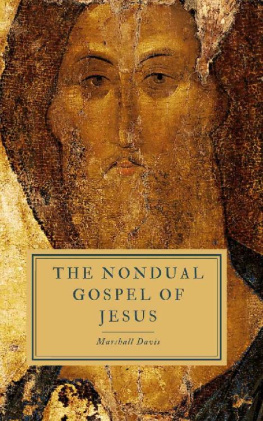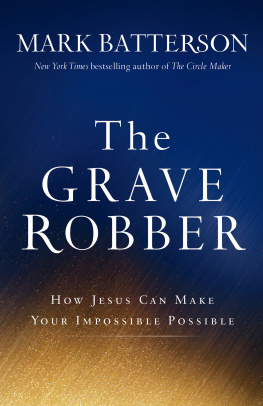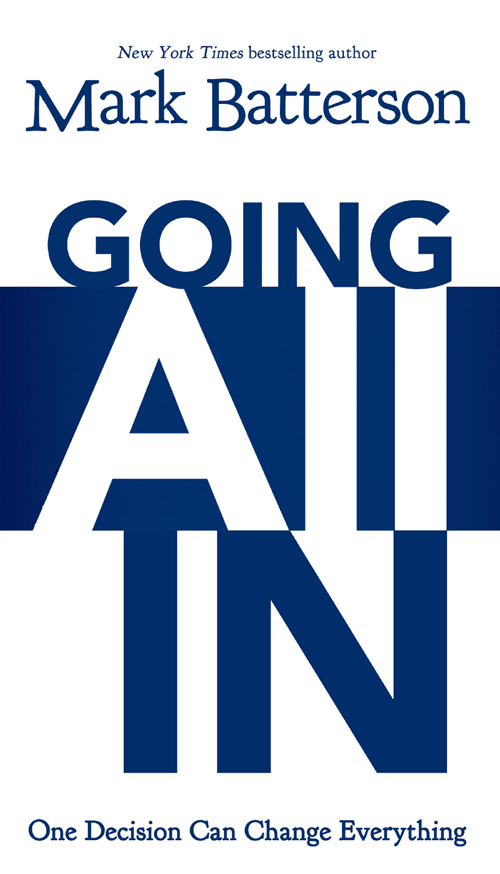A century ago, a band of brave souls became known as one-way missionaries. They purchased single tickets to the mission field without the return half. And instead of suitcases, they packed their few earthly belongings into coffins. As they sailed out of port, they waved good-bye to everyone they loved, everything they knew. They knew theyd never return home.
A. W. Milne was one of those missionaries. He set sail for the New Hebrides in the South Pacific, knowing full well that the headhunters who lived there had martyred every missionary before him. Milne did not fear for his life, because he had already died to himself. His coffin was packed. For thirty-five years, he lived among that tribe and loved them. When he died, tribe members buried him in the middle of their village and inscribed this epitaph on his tombstone:
When did we start believing that God wants to send us to safe places to do easy things? That faithfulness is holding the fort? That playing it safe is safe? That there is any greater privilege than sacrifice? That radical is anything but normal?
Jesus didnt die to keep us safe. He died to make us dangerous.
Faithfulness is not holding the fort. Its storming the gates of hell.
The will of God is not an insurance plan. Its a daring plan.
The complete surrender of your life to the cause of Christ isnt radical. Its normal.
Its time to quit living as if the purpose of life is to arrive safely at death.
THE
INVERTED
GOSPEL
I n the sixteenth century, the Renaissance astronomer Nicholas Copernicus challenged the belief that the earth was the center of the universe. Copernicus argued that the sun didnt revolve around the earth, but rather that the earth revolved around the sun. The Copernican Revolution turned the scientific world upside down by turning the universe inside out.
In much the same way, each one of us needs to experience our own Copernican Revolution. The paradigm shift happens when we come to terms with the fact that the world doesnt revolve around us. But thats a tough pill to swallow.
When we are born into this world, the world revolves around us. Were spoonfed on the front end and diaper-changed on the back end. Its as if the entire world exists to meet our every need. And thats fine if you are a two-month-old baby. If youre twenty-two, its a problem!
Newsflash: You are not the center of the universe!
At its core, sinfulness is selfishness. Its enthroning yourself your desires, your needs, your plans above all else. You may still seek God, but you dont seek Him first. You seek Him second or third or seventh. You may sing Jesus at the center of it all, but what you really want is for people to bow down to you as you bow down to Christ. Its a subtle form of selfishness that masquerades as spirituality, but its not Christ-centric. Its me-centric. Its less about us serving His purposes and more about Him serving our purposes.
I call it the inverted gospel.
Whos Following Who
Most people in most churches think they are following Jesus, but Im not so sure. They may think they are following Jesus, but the reality is this: they have invited Jesus to follow them. They call Him Savior, but theyve never surrendered to Him as Lord. And I was one of them. Trust me, I didnt want to go anywhere without Jesus right there behind me. But I wanted Jesus to follow me, to serve my purposes, to do my will.
It wasnt until I was a nineteen-year-old freshman at the University of Chicago that I had my Copernican Revolution. It started with this question: Lord, what do You want me to do with my life? Thats a dangerous question to ask God, but not nearly as dangerous as not asking that question!
I got tired of calling the shots. Honestly, I wasnt very good at playing God. Plus it was exhausting. I stopped trying to find myself and decided to seek God. I couldnt read His Word enough. I got up early to pray. I even fasted for the first time in my life. I meant business. In fact, business as usual went out of business. For the first time in my life, I put Him first.
On the last day of summer vacation, I got up at the crack of dawn to do a prayer walk. Our family was vacationing at Lake Ida in Alexandria, Minnesota. The dirt road I walked down may as well have been the road to Emmaus. The cow pasture I walked through may as well have been the back side of the Sinai Desert with a burning bush. After months of asking, I finally got an answer to my question. I knew what God wanted me to do with my life.
On the first day of my sophomore year, I walked into the admissions office at the University of Chicago and told them I was transferring to a Bible college in Springfield, Missouri, to pursue full-time ministry. The guidance counselor thought I was crazy. So did a few friends and family members. Giving up a full-ride scholarship to one of the top-ranked universities in the country didnt make much sense on paper. The logical and practical thing to do would have been to finish my undergrad studies at the U of C and then go to seminary, but I knew this was my all-or-nothing, now-or-never moment. I knew I needed to quit hedging my bets, push all my chips to the middle of the table, and go all in with God.
Was it a gut-wrenching decision? Yes. Did I ever second-guess it? More than once! But the true adventure of following Jesus didnt begin until I went all in. That is the day I stopped asking Jesus to follow me and decided to follow Him.
Let me ask the question: Whos following who?
Are you following Jesus?
Or have you inverted the gospel by inviting Jesus to follow you?
Each year, I have the privilege of speaking to tens of thousands of people at churches and conferences all across the country. At first, I was shocked by the response, in a Christian audience, to a simple invitation. When I invited people to follow Jesus, about 50 percent would typically respond. Whats astounding about that percentage is the simple fact that 100 percent of them thought they were already following Jesus. They werent. They had inverted the gospel. They bought in, but they hadnt sold out. They were half in and half out.
At first, I thought this was an anomaly. How could half of us get it backward? Now Im afraid its normative. And if it is, then we desperately need a new normal.
Holy Dare
More than a hundred years ago, a British revivalist issued a holy dare that would change a life, a city, and a generation. That timeless challenge echoes across every generation: The world has yet to see what God will do with and for and through and in and by the man who is fully and wholly consecrated to Him.
The original hearer of that call to consecration was D. L. Moody. When those words hit his eardrums, they didnt just fire across synapses and register in his auditory cortex. They shot straight to his soul. That call to consecration defined his life. And his life, in turn, defined consecration.

